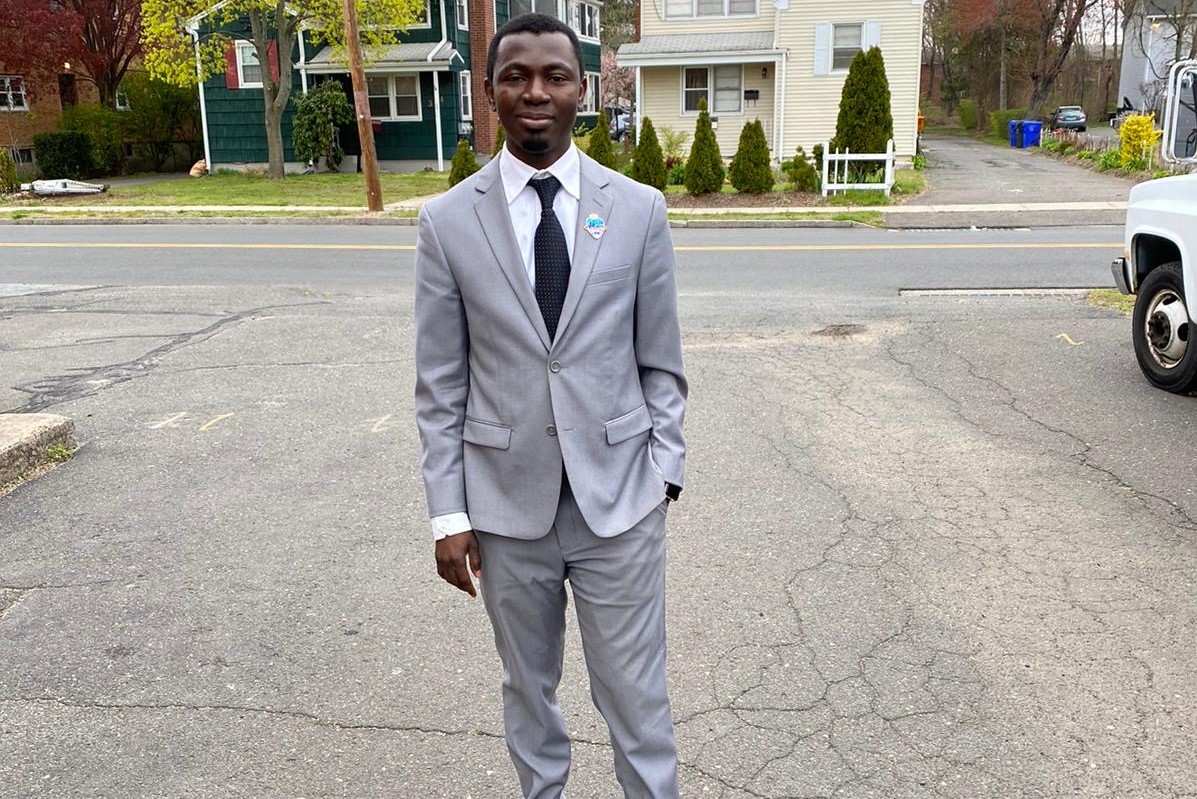Eric Atanga’s journey to the Department of Pathobiology and Veterinary Science has not been without difficulty. He earned a degree in psychiatric nursing from the Nurses’ Training College in Ghana, then an associate degree in liberal arts and sciences at Connecticut’s Manchester Community College. He feels that this is the best time to be alive, and he considers a life without challenges as boring. He welcomes the process of facing obstacles, overcoming them and moving forward to repeat the process. His dream career would be to operate a clinic in Africa that focuses on infectious disease, while working in a clinic in the United States that addresses mental health. Read more about Atanga’s experiences as a UConn student.
What attracted you to the UConn College of Agriculture, Health and Natural Resources?
My passion for health and the desire to help sick people brought me to CAHNR. I was not familiar with the College, but my counselor at Manchester Community College knew exactly where to guide me when I shared with him what I had inside me that I wanted to give to my world. I want to be part of the next generation of healthcare in the area of mental health, infectious disease and vaccine development.
Why did you choose your particular major?
I vividly remember several years ago in Ghana when I sat on the gravel floor, my fingers picking up the smaller stones to play with while I watched a small color TV. They put it on a table in front of the house so that everyone could watch before bedtime. There was a special program highlighting a doctor on national TV that day, and I was intrigued as he eloquently explained how infectious diseases attack the body and the markers they leave behind for pathologists to find. He was so educated. I wanted to also be able to identify those markers and be helpful to my people.
Which one of your UConn activities, internships or jobs was the most memorable? Why?
All the time I’ve been at UConn as a full-time student, I still had a job and the care of my wife and two children (five years and two years old). I had a full-time job as a behavior technician on third shift while coming to campus in the day. I still work the same job, but part time now. I will always remember the struggles of working and schooling at Storrs, and it has enriched my personality.
Name two other experiences that have enriched your studies.
Signing up with the academic support center taught me how to seek help and study with other students. Also, interestingly, the COVID-19 gave me an opportunity to relax, reflect and modify my learning strategy.
What has been the biggest challenge in your UConn career?
My biggest challenge has been being able to finish my exams on time for some of the courses, especially those that require a lot of reading during exams. English is not my first language, so I will have to read two or three times to understand, even had to translate in my mind to understand the meaning. The CSD (Center for Students with Disabilities) couldn’t give me an allowance because it’s not a disability, and without the CSD approval almost all instructors couldn’t give allowances either. I sought help from my counselor, department head and dean of students, and it became clear that I had to work on my speed. Which I did by making sure I mastered the material prior to exams. It’s still a work in progress but better.
When do you expect to graduate? What then?
I’m working on graduating May 2021. I plan to apply to medical school, but am open to working in a pathology lab or continuing school to become a physician’s assistant.
Has the COVID pandemic affected your studies or research?
It has not affected my studies much because I’m still able to take the courses I would’ve. However, I do miss in-person classes, especially labs.
Is there anything else you would like us to know about you?
I am very much involved in my community church, especially the youth. Almost every semester, I organize back-to-school programs to inspire young people to pick up careers, register for classes and to start or go back to college.



